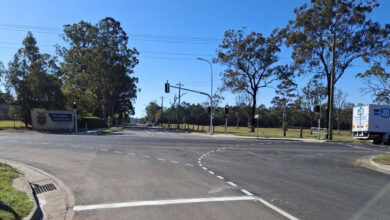Why become a councillor?
It is a good question and one Ipswich City Council’s Interim Administrator Greg Chemello is asking potential candidates to give some serious thought to in the lead up to the March 2020 local government elections.
“There is no formal ‘position description’ or ‘selection criteria’ for the role of councillor or mayor,” Mr Chemello said in launching Ipswich, it’s your council: A Candidate Guide for Ipswich City Council.
“Elected representatives come from a wide range of backgrounds and perspectives.
“Successful councils are generally made up of people with different skills and abilities; a diversity of people with an extraordinary passion for their community.”
The guide looks at what strengths, skills and knowledge a councillor should have; and the importance of diversity.
“One of the most challenging aspects of the role is that councillors are required to make decisions that affect people’s lives to varying degrees and some of these decisions will not always be popular with constituents,” Mr Chemello said.
“It’s important that councillors can successfully communicate the council’s vision to their constituents, and the need to pursue long-term objectives consistent with this vision.
“Sometimes that means some people won’t achieve their short-term ambitions because of the overarching greater good for the community.”
Mr Chemello said the role of a councillor is exciting, diverse and challenging.
“Every day you will be expected to balance the needs of your local areas and its residents, the priorities for the city as a whole, community groups, local businesses and the council.
“All will make legitimate demands on your time – on top of your personal commitments to family, friends and obligations which may include running a business or balancing another part-time role.
“As a democratically elected local representatives, you will be in a rare and privileged position to potentially positively change people’s lives.
“You’ll be provided with the opportunity to learn new skills and work with diverse and passionate locals on a range of issues.”
One of the key components of the guide is the Interim Administrator’s Candidate Checklist which deals with personal motivation, the role of a councillor (and mayor), council knowledge, and a candidate’s campaign and the logistics of running it.
Points covered include:
• Have you considered why you want to run? What are your motivations? What do you want to achieve? Do you have a genuine history of community involvement?
• Have you considered whether you have the appropriate skills, knowledge and experience to run?
• Have you considered any perceived or actual conflicts of interest that will need to be declared?
• If you work for yourself, have you considered how much time you will commit to the role of councillor?
• Do you understand that a councillor is responsible for the leadership of the entire city, not just his or her division?
“If you’ve decided to run for the March 2020 local government elections, you owe it to Ipswich residents to do your research to enable you to make informed, educated commitments,” Mr Chemello said.
The guide clearly spells out understanding the role of councillors, the five fundamentals, including a mandatory code of conduct, and what a councillor does in an average day. Read it here.
Read More
>>>Guide details what mayors and councillors should do for community


